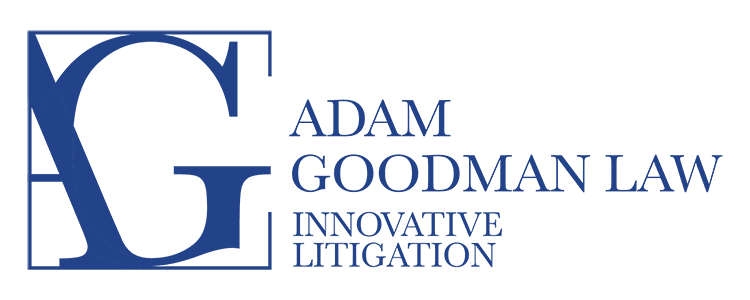This is the first of two “Back to School” blog entries. Next week I will blog about disciplinary procedures at post-secondary institutions.
Last September, I defended a young client (whom I was defending on related criminal matters) at an expulsion hearing before a board of education. The pupil’s principal, in accordance with the Education Act (the “Act”), had conducted an investigation into an incident and had recommended his expulsion to the board. The board lawyers “prosecuted” the matter before an independent tribunal (consisting of three trustees serving in a non-political role and assisted by their own privately-hired lawyer separate from the salaried school board lawyers).
At the hearing, I was provided an opportunity to cross examine the principal on his report following direct examination by the board lawyer. I could then call my own evidence (which may include the pupil, parents, witnesses, etc.). All evidence was given under affirmation. In this case I decided to call evidence from the pupil however one should always consult a lawyer before calling evidence from the pupil in cases where there is an ongoing or pending criminal matter. Following the giving of evidence, both sides make final submissions. The trustees, with the assistance of their counsel, will then retire to make their decision.
The Act allows a principal to suspend a pupil for a number of different reasons. More serious suspensions may result in an investigation by the principal and a possible expulsion. Acts which may lead to suspension but do not carry the possibility of expulsion include (as found in s. 306 of the Act):
- Uttering a threat to inflict serious bodily harm on another person.
- Possessing alcohol or illegal drugs.
- Being under the influence of alcohol.
- Swearing at a teacher or at another person in a position of authority.
- Committing an act of vandalism that causes extensive damage to school property at the pupil’s school or to property located on the premises of the pupil’s school.
- Bullying.
- Any other activity that is an activity for which a principal may suspend a pupil under a policy of the board.
Acts which may lead to an expulsion include (as found in s. 310 of the Act):
- Possessing a weapon, including possessing a firearm.
- Using a weapon to cause or to threaten bodily harm to another person.
- Committing physical assault on another person that causes bodily harm requiring treatment by a medical practitioner.
- Committing sexual assault.
- Trafficking in weapons or in illegal drugs.
- Committing robbery.
- Giving alcohol to a minor.
- Any other activity that, under a policy of a board, is an activity for which a principal must suspend a pupil and, therefore in accordance with this Part, conduct an investigation to determine whether to recommend to the board that the pupil be expelled.
As is clear from the final bullet point in each list, a principal has a fairly widespread authority to suspend under either section for any act they deem worthy of such a consequence.
Suspensions under s. 306 (the first list), which must include formal notice, may be for 1-20 days. The pupil may appeal the suspension within the specified time period at which point a hearing will be scheduled.
Suspensions under s. 310 (the second list), which must include formal notice, may be for 1-20 days. The principal must also conduct an investigation (which includes speaking to the pupil, parent/guardian if the pupil is a minor, and any other relevant parties) and determine whether to confirm the suspension and its duration, confirm the suspension but shorten its duration (this may be done even if the suspension has already been served), or recommend an expulsion. The recommendation for expulsion must a recommendation as to an expulsion from the school or all schools in the board (which may extend to other school boards in the province) as well as what programs the pupil might benefit from while expelled. In cases where an expulsion is not recommended the pupil may still appeal the suspension in which case a formal hearing will be held.
Suspensions which are appealed do not result in the suspension being lifted pending the outcome of the appeal. The pupil must still serve the suspension until a decision is reached. Should the suspension be lowered or quashed the change will be noted in the student’s record.
In cases where an expulsion is recommended, the board must conduct an expulsion hearing within 20 days of the initial suspension (unless all parties’ consent to adjourn the matter). The pupil and their parents (if they are a minor) have the right to attend the hearing and be represented by counsel (although I am told many do not attend).
At a suspension or expulsion hearing, the trustees sitting on the tribunal have the following powers:
Suspensions:
- Confirm the original suspension.
- Lower the duration (again, the suspension may have already been served) of the suspension.
- Quash the suspension in its entirety.
Expulsions:
- Expel the pupil from all schools in the board (which may extend to other school boards in the province).
- Expel the pupil from their own school.
- Implement a suspension of a length of 1-20 days.
- Quash the initial suspension in its entirety.
In making their decision, the trustees should consider all evidence before them including any mitigating factors.
There is no avenue of appeal mentioned in the Act. Thus, the method to challenge any decision of the tribunal is through a judicial review in the Superior Court of Justice.
The Act (s. 312) requires boards of education to provide education to all pupils falling within their jurisdiction. This includes suspended and expelled pupils. There is a requirement under the Act that boards provide programs for suspended or expelled pupils. Thus, suspension or expulsion does not mean that the student is barred from attending school for either a specific or indefinite period, only that they cannot attend a regular school program. I have been told that many students excel in these alternative programs and are provided with more support than they would receive in a traditional school program.
The Act (s. 314) allows an expelled pupil to be readmitted to a traditional school program if they successfully complete a program for expelled pupils or satisfy the required objectives required for the completion of the program.
For more information on my practice in the areas of Education Law and academic/university discipline, please see http://aglaw.ca//legal-services/education-academic.
For more information on my criminal law practice, please see http://aglaw.ca//toronto-criminal-lawyer.

